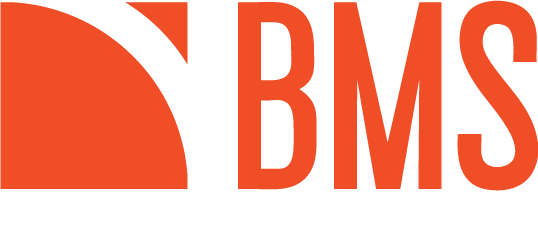First of all, you have to figure out what you really want. It sounds self-evident, but it isn’t, while we are continuously influenced by the success of others (the sun shines brighter on the other side of the fence) and by opportunities and vacancies that present itself.
You have to get rid of this clutter!
These are the 3 steps that will help you achieve this:
Step 1 Your identity is more than a name tag.
Define who you really are – your identity: what you stand for, what you can do, enjoy doing, and what you would like to do
Step 2 Make this Identity visible
Make this identity visible to others in your communication and behavior.You do this ongoing – on and offline
Step 3 Manage your External Persona:
Your Personal Brand
Also, people in your current company will notice the difference once you are on a mission from and for yourself. Your boss and company HR might want to re-assess if there is something more that you could do for them with your new mindset.
“Your brand is what people say about you when you’re not in the room“
JEFF BEZOS, founder Amazon
When the time comes for you when you are ready to move faster than your current company can accommodate, you might want to look elsewhere. Hey, this is NOT an act of disloyalty to people who have given you opportunities to grow in the first place, but rather a duty to give yourself all possible chances.
How does this play-out for Lawyers and HR Professionals?

Step 1. Your Identity is more than a name tag:
When do you identify yourself as a “Lawyer” ?
Many times, we have seen lawyers in legal practices get disappointed for a variety of personal reasons, to the point where they look outside of the legal profession to support their financial and/or professional goals.
Nothing wrong with this endeavor, when it is in your personal and family’s benefit, but consider the many years, days and hours you have spent to bring yourself up to a level of competence when clients finally are enticed to value your advice and service – because it comes from YOU!
A more sound and beneficial strategy could be to focus your career on the legal specialty that you fancy, strive for mastery in this field(s), and establish your client accounts within your existing or a new company.
Consider also that smaller independent companies might offer “partner” opportunities sooner than big ones, all the while maintaining legal and ethical standards.
One of the reasons to step outside of the legal profession is the emotional stronghold law firms have on their lawyers and it is difficult to imagine that tomorrow you will be representing another firm. Step over it – by the day after tomorrow it will only be a memory, but respect rules of confidentiality and you are not a poacher – respect privileges.
Step 2. Show who you really are :
When will people sense that you are serious about HR?
Over the past decade, a trend to include business process knowledge and business experience in the career development of Human Resources Managers became a best practice.
The HR Business Partner movement highlights in multicolor the
Mission of HR
Making sure the talent that the business needs to thrive, is available and ready. Attracting, selecting, and developing those people, who add – in the short and long term- to the capabilities of the company, is the specialty of HR.
All the other stuff is mostly noise, but mandatory noise, one that you HAVE to attend to in an impeccable,professional way. If you don’t, your net “presence” value will rapidly turn negative and you will be discarded.
What is the impact of this mission for HR practitioners on building an HR career? What are the skills that you have to be able to show to the world?
Get People Smart
When it comes to managing and developing people in an organization, HR should be the preferred “go-to” adviser for senior and line management alike. From our practice, we have noticed that General Managers will take your detailed knowledge of labor law for granted, but will want your expert counsel and support about issues like making sure every employee is allowed and enticed to contribute to the company’s performance.
An HR person should be or rapidly become a fanatic of understanding human behavior in groups, as individuals, in- and outside of work, at home and in society – with a special interest in biases and drives(1) (2), extensively used by marketers, but seldom by HR people.
Almost the only practical way to make this happen is taking up a patchwork of jobs in specialist HR areas: recruitment, compensation, employee relations, internal communication before moving into a generalist position like HR Business Partner. Professor Evans from INSEAD refers to this type of career development as the “ Spiral “ track, where you go from one specialist job to another within the same profession (3)
Or you might get addicted to one particular specialty and stay there for the rest of your career, climbing up the ladder of specialist seniority.
Get Dirty

An academic degree will only bring you so far in HR, and better prepare yourself for lifelong learning in fields that are/were initially not your own.
HR should not be afraid to make their hands dirty – and be in the center of the action, rather than a sideline advisor. Take on an assignment as a line manager when the opportunity arises. Volunteer for business-related projects where you can showcase that your understanding of people’ s drives and behaviors is an identifiable Plus and not a hindrance.
If these types of opportunities don’t come along, open your mind and dive into business topics that affect your current company, familiarize yourself with basic principles of finance and accounting, if you have the time, enroll in a MBA- program, feed your curiosity in the real world and not just on Wikipedia or Google Search.
That reminds me: all the long forgotten science subjects from high school are available for you to explore in a practical fashion. Fun isn’t it?
Step 3 : Manage your Brand

When you’re a soccer player, you want your mates and your trainer to know what you stand for in the team: the goalgetter, the person of the last assist or the “breaker” in lower midfield. The same should be true in professional life: you want colleagues, bosses, headhunters, customers and others inside and outside the firm to know what you stand for, what you are proud of to be. This pride is an essential emotion to be credible and successful.
This is now commonly known as your Personal Brand -which is quite different from your Employee Brand. Fundamentally they originate from a totally different mindset and perspective on life and on career development. Below is detailed overview of the differences in behavior
The table was published by Alexandra Djordjevic for The Iuvo, a Canadian Advertising and Branding agency. The full article is accessible via de link in the reading list below (4).
Further reading and surveying is required to understand how these two mindsets play out in the Thai corporate and business world – let’s keep this as a future assignment!
Most Valuable career advice for everybody: Read till you drop

With the amount of and the ease-of-access to multimedial material, we have to make a conscious “pull” effort to read books – not just an article or a blog , but books with content that has been researched over years and challenged by peers and critics.
Spend time to make a criteria based selection of fiction and non-fiction books and prepare to be a social outcast . Not many will understand the logic of your behavior – but be assured it pays off!
- Evans, P. https://www.insead.edu/faculty-research/faculty/paul-a-l-evans
- Kahneman, D Thinking Fast and Slow, https://en.wikipedia.org/wiki/Thinking,_Fast_and_Slow
- Thaler, R. Misbehaving. https://en.wikipedia.org/wiki/Misbehaving:_The_Making_of_Behavioral_Economics
- https://theiuvo.com/employee-branding-vs-personal-branding/


